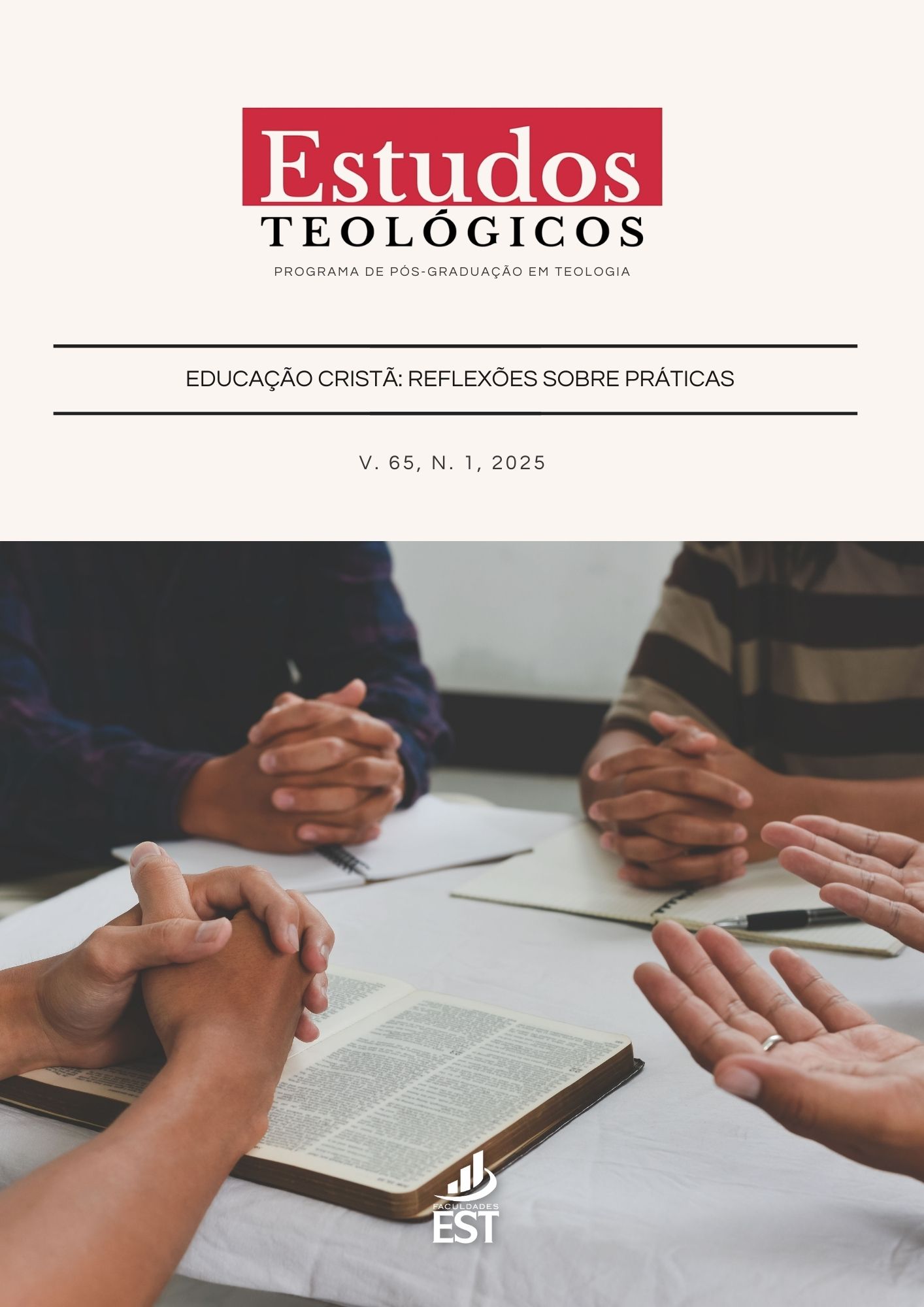O desencantamento do mundo e a crise civilizacional
desafios e possibilidades teológicas na perspectiva luterana
DOI:
https://doi.org/10.22351/et.v65i1.3486Schlagworte:
Desencantamento do mundo, Epistemologia teológica, Teologia luterana, Modernidade e racionalidade, Relação ser humano-naturezaAbstract
A modernidade consolidou um paradigma civilizacional baseado na separação entre humanidade e natureza, processo que culminou no desencantamento do mundo e na instrumentalização da natureza. Esse fenômeno não apenas estruturou a lógica do desenvolvimento técnico-científico e econômico do Ocidente, mas também afetou profundamente a teologia cristã, especialmente a protestante, que historicamente privilegiou uma abordagem que dissocia transcendência e mundo natural. Diante da crise ecológica contemporânea e do esgotamento simbólico das estruturas religiosas para lidar com a relação entre ser humano e natureza, este artigo busca investigar se e como a teologia pode oferecer uma resposta a esse impasse. O problema central da pesquisa consiste em questionar se a tradição teológica protestante, considerada por Max Weber como um vetor do desencantamento do mundo, pode fornecer elementos para a reconstrução de uma relação mais integrada entre ser humano, natureza e Deus. A hipótese sustentada é que a teologia luterana, especialmente por meio de sua doutrina eucarística, oferece uma chave hermenêutica para repensar a sacralidade da criação sem desconsiderar a autonomia da natureza. Os resultados indicam que a teologia sacramental luterana possibilita uma reconciliação simbólica entre natureza e transcendência, abrindo espaço para uma epistemologia da graça que ressignifica a relacionalidade perdida pela modernidade. O método adotado foi uma abordagem teológica interdisciplinar, articulando filosofia, história e teologia sistemática para compreender as raízes do desencantamento e propor alternativas no interior da tradição reformada. Dessa maneira, este artigo contribui para o debate teológico contemporâneo, sugerindo novos caminhos para a construção de uma espiritualidade ecológica no contexto protestante.
Downloads
Veröffentlicht
Zitationsvorschlag
Konferenzband
Rubrik
Lizenz
Política de Acesso Livre
A Revista Estudos Teológicos é de acesso livre, o que significa que todo o conteúdo está disponível gratuitamente, sem custos para o usuário ou sua instituição. Os leitores podem ler, baixar, copiar, distribuir, imprimir e compartilhar os links para os textos completos dos artigos, desde que com a devida atribuição de autoria e fonte original, conforme a licença abaixo.
LICENÇA CREATIVE COMMONS
Esta obra está licenciada sob uma Licença Creative Commons Atribuição-NãoComercial 4.0 Internacional (CC BY-NC 4.0).












